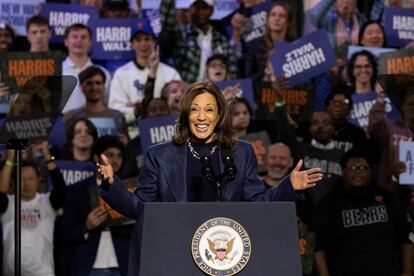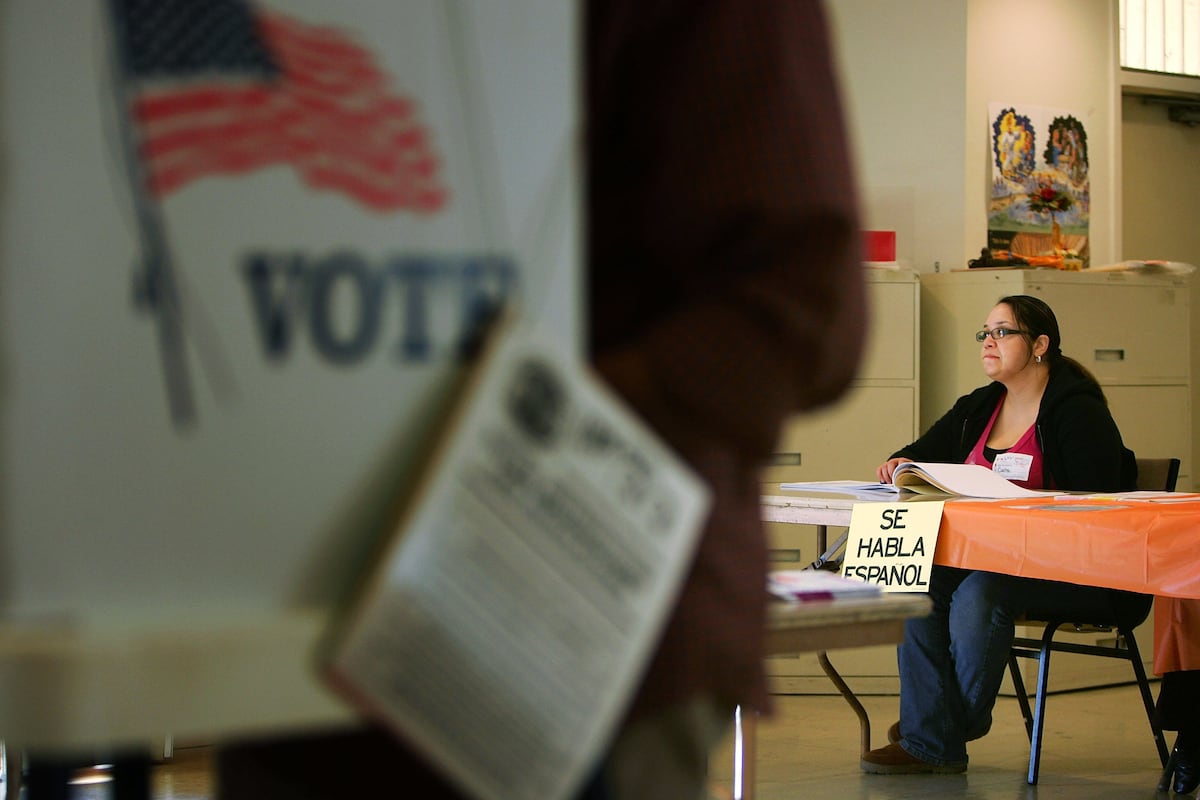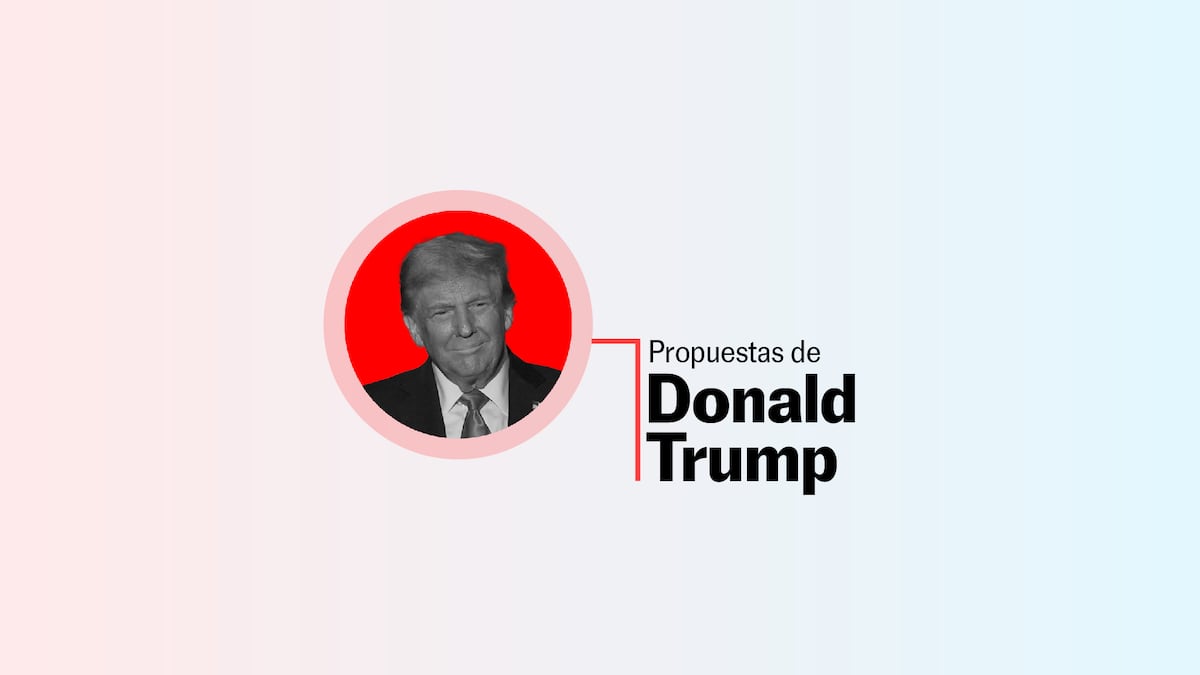The title of a famous comedy by Antonio Zamora, “There is no deadline that is not met, nor debt that is not paid,” states that the pre-established moment of something crucial will arrive, no matter how much one wants to push it away. Well, the day arrived. This Tuesday, November 5, one of the most important elections in the history of the United States and the world will take place.
The process has been tortuous and atypical. On the one hand, a Republican candidate, former president, 78 years old, convicted felon, repeatedly accused of sexual harasser and on whose life there have already been two attacks. He is an impressive, radical communicator who has been able to read and act on the anger of various sectors of American society, especially non-Latin “whites” who feel their predominant position in society is receding every day compared to other population groups. He already falsely ignored a first election that he lost and in this one, so close, it would not be surprising if he did the same.
According to Donald Trump, the country’s economy is a disaster, although according to growth, inflation and unemployment figures, for example, they indicate that this is not the case. He has also sold the idea of the “invasion” of illegal Latin Americans, whom he constantly declares as criminals or inferiors, and promised to carry out the “largest mass deportation in history.” This, paradoxically, is one of the themes that resonate with Latin Americans established in the United States, of which there are many, and who align more with the group of “non-Hispanic whites” than with their ancestry. According to the government census office for 2020, in two states, California and New Mexico, Latinos are the majority, while in 23 more states they are the second ethnic group.
Trump has also had the thunderous support of many billionaires, the most explicit and visible of which is Elon Musk, the richest man in the world; implicitly, it is also supported by the second richest man in the world. Jeff Bezos blocked the statement of support that the editorial board of his newspaper, the very influential Washington Posthad a list in favor of Kamala Harris, which ended in de facto support for Trump. The influential world of digital and AI entrepreneurs is divided. Some support Trump, worried that a Democratic administration will impose many regulations that will affect their businesses and put America’s undisputed leadership at risk; They fear that it will reach the point of demanding that large technology companies be “broken up,” due to their predominant position in the market.
Trump has announced more tax cuts for the rich. The argument is that greater profits in the hands of companies will bring reinvestment in more efficiency and modernization, a general situation of improvement of the middle and working class, and greater economic growth. Many economists – on the other hand – consider this unrealistic and believe that it will be harmful to the State’s finances and against the middle class, who will end up paying the price.
One of the aspects of his presidency that scares many is the rise of the radical far-right, on social, economic, racial and gender issues, which liberals feel is the crushing of minorities.
Harris, in turn, represents several minorities in a single person as she is a woman, of African and Asian descent simultaneously. Born in Oakland, California, possibly the most liberal State in the Union, in an upper-middle class, immigrant and intellectual family. Unlike New Yorker Trump’s parents, a wealthy real estate developer of German origin and a housewife and socialite Born in Scotland, Harris’s mother was an Indian immigrant, a scientist whose research in oncology is renowned; His father—of Jamaican origin—is an economist and professor emeritus at Stanford University, the first black academic to receive tenure (permanent faculty) at one of the most reputable universities in the world. Harris’ career made her a star in California, as San Francisco district attorney and then state attorney general, before being elected senator in 2016. She is criticized, however, for her lack of knowledge in other areas of management of the state.
Her time as vice president of the country, which she achieved as the first woman and ethnic minority, is not perceived as brilliant. Joe Biden put her in charge of the issue of illegal immigration, an undoubtedly complex issue. Although Harris was not in charge of the “administration” of the border, having delayed a couple of months in visiting it since Biden entrusted her with the immigration issue, earned her multiple criticisms. Although it established dialogues with the Central American countries, the perception of many, fairly or unfairly, is that it failed to design and apply a clear and cohesive policy for the management of this matter.
Harris also has her cohort of billionaires, even more than Trump, although less spectacularly. According to the magazine Forbes83 of them support her, while 52 support Trump. In Silicon Valley, where a large part of the digital industry has been established, she also has support. In fact, on September 6, some 90 business leaders and millionaires issued a letter supporting her in which — among other things — they said that “she will continue to develop fair and predictable policies that support the rule of law, the stability and reliability of our democracy and our economy.” Harris also plans to raise taxes on companies and the rich and make cuts to the middle class, as well as expand social benefits. A big difference with Trump on tax matters and one of the issues that scares much of the American corporate world.

As for minorities, neither she nor her party managed to fully reach the hearts of Latinos or African Americans. According to a recent survey by the Pew Research Center, 84% of black voters would vote for Harris and 13% for Trump. Immense advantage, but less than four years ago, when 92% voted for Joe Biden and 8% for Trump.
With Latinos, the situation is more difficult, although the Democratic vote still prevails. According to a recent poll by NBC News, CNBC and Telemundo, Harris leads the Latino voting intention with 54%, while Trump has 40%. A 14% advantage for the Democrat. What is striking is the way the difference has been narrowed: in the 2020 election, the Democratic advantage was 33%, in 2016 it was 38% and in 2012 it was 44%. The Democratic advantage today is 30 percentage points smaller compared to the intention to vote for the Republicans.
One of the aspects of his presidency that scares many is the rise of wokenesson social, economic, racial and gender issues, which the very conservative feel like the dictatorship of minorities, against the traditional values of society.
Latin America is still wondering who it will do better with, in the midst of its unfortunate irrelevance compared to everything else that is happening in the world. Except for illegal migration, the Gaza Strip, Ukraine, terrorist threats and the expansion of China’s political, economic and commercial influence, among others, will take away Washington’s attention. I wish the new White House included in its plans for the region trade, development, security and cooperation programs that are favorable for both sides, with clear immigration policies that are enforced. Possibly a new chapter of Kennedy’s Alliance for Progress. Which of the two would go this route?
The deadline was met and it was time to vote. In addition to what is best for them personally, Latinos should also vote thinking about who will support their countries the most, where they surely still have family. Washington DC’s level of influence in the region puts its future—largely—in the next tenant of 1600 Pennsylvania Avenue.






